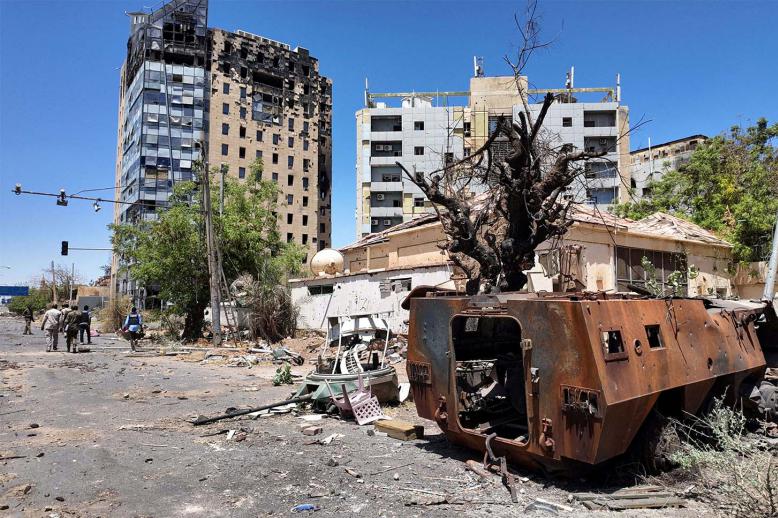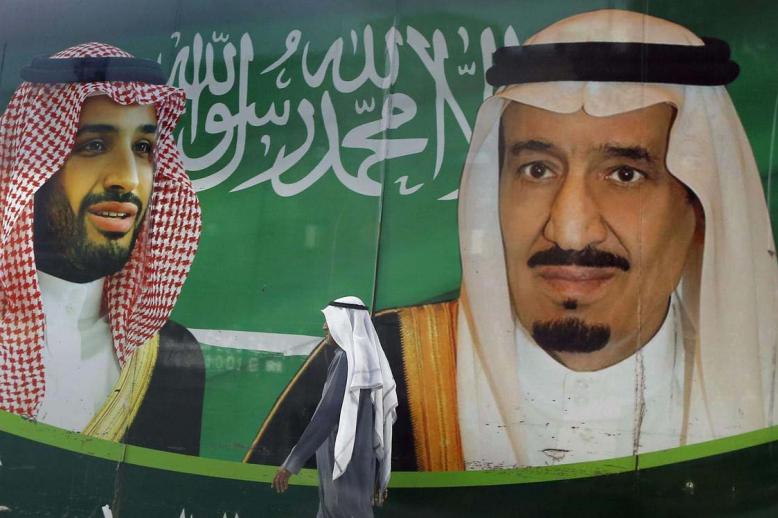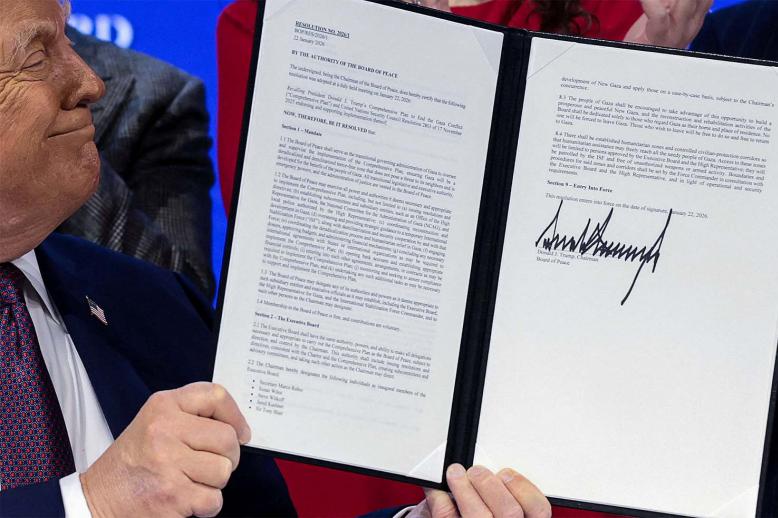Qatar is not the mediator the Arab world needs
As the Arab region goes through one of its most critical junctures in years, all eyes are on Iran, the United States, Saudi Arabia, the United Arab Emirates and, to a lesser extent, Israel.
With the focus on these major players, smaller actors such as Qatar can sometimes go unnoticed, even though they play an important part in shaping the region’s alliances and power dynamics.
Qatar, which is reeling from a boycott imposed by the United Arab Emirates, Saudi Arabia, Bahrain and Egypt in June 2017, continues to punch above its weight, positioning itself in the middle of geopolitical disputes in a way that further alienates its Arab neighbours.
Qatar’s position on Iran is a case in point.
On May 1, Qatar spoke out against Washington’s decision to block all Iranian oil exports, arguing that unilateral sanctions were “unwise” because they could hurt countries that rely on the supplies. Such a stance won Qatar some Iranian trust and seemingly aligned Doha further with Tehran’s axis but there is more to this than meets the eye.
Some interpreted Qatar’s manoeuvres as a way to create balance between Iran, with which it has developed an unofficial yet open alliance, and the United States, which it also considers an ally. However, there is reason to believe that both countries should be wary of Qatari intervention.
Despite what some Iranians may believe, Qatar it is not a true friend and should not be included in their circle of trusted allies.
Doha’s intentions, as alluded to by Qatari Foreign Minister Sheikh Mohammed bin Abdulrahman al-Thani last November, are to continue to deal with Iran, which helped a desperate Qatar secure supplies when the Arab boycott was first imposed, and to mediate between Washington and Tehran.
The play on “mediation” is not new. Qatar has long had two faces to its foreign policy, which allows it to secure protection from Western countries even as it seeks to destabilise them through financing terror and supporting hostile entities in the Middle East.
Even with that considered, some argue that, given its unique political position, Qatar is the most capable of mediating between Washington and Tehran. Others say Doha has been acting on Washington’s behalf since the beginning of the crisis, offering itself as a potential channel of communication with Iran.
That view was reinforced by the Qatari foreign minister’s recent visit to Tehran, which the United States reportedly knew of in advance, hinting that the administration of US President Donald Trump is not interested in further escalation.
Washington’s position is understandable because Trump does not have the time or political capital to attack Iran. Those preparations could take months and Trump is already setting his sights on presidential elections in November 2020, hoping to win a second term in office.
Some Washington insiders have suggested that, after scrapping the nuclear deal reached under former US President Barack Obama, Trump may be interested in designing his own accord.
Trump has repeatedly shown his infatuation with striking deals of all kinds: trade deals, a potential deal with North Korea, the “Deal of the Century.” All of these, Trump hopes, serve as evidence of his political acumen.
This is the political backdrop under which Qatar is playing the role of mediator.
Qatar, unlike others, can present itself to Iran as a “trusted friend” that is repaying Tehran’s favour of rescuing it after a crippling boycott.
Qatar can also hope to convince the United States that easing pressure against Iran will not embolden Tehran and its proxies.
However, whether the Qataris are buying time for the Iranians, intentionally or unintentionally, or manoeuvring to get the Trump administration out of its predicament, one thing is certain: Qatar is, as always, walking a tightrope, hoping to gain leverage on the international stage by making risky and dangerous political calculations.
There are other factors to consider. Qatar’s mediation efforts will doubtlessly be viewed with suspicion by Washington’s traditional allies, notably Saudi Arabia, the United Arab Emirates and Egypt.
Those countries at odds with Qatar will have no faith in the small emirate’s mediation efforts. Saudi Arabia and the United Arab Emirates, the primary victims of Iran’s aggressive behaviour, could feel abandoned by Washington if a settlement is reached with an arch-rival through the involvement of an untrusted mediator.
Even with talk of warming ties between Doha and Tehran, Iran will hardly view Qatar as a trusted mediator. Home to the United States’ Al Udeid Airbase, from which B-52 strategic bombers were recently deployed in a warning to Tehran, Qatar is being used by the United States to strike back at the mullahs’ regime and Iran understands this.
Regional tensions have not been this high since the second Gulf war and they seem to be getting worse. Until recently, there was only fiery rhetoric, especially on the part of Iran, but now there are suspicions of outright attacks on neighbouring countries’ vessels.
Investigations are still under way but initial assessments indicate that Iran was involved in explosions on four ships May 12 off the UAE coast. Tehran is also suspected of being behind a drone attack that hit two oil pumping stations in Saudi Arabia.
In such a tense environment, trust is of key importance and Qatar, which is at the centre of controversy in the region for its alleged support of terrorism and ties with Tehran, should not be given any trust, let alone afforded the role of mediator.
Iman Zayat is the Managing Editor of The Arab Weekly.
This article was originally published in The Arab Weekly.







